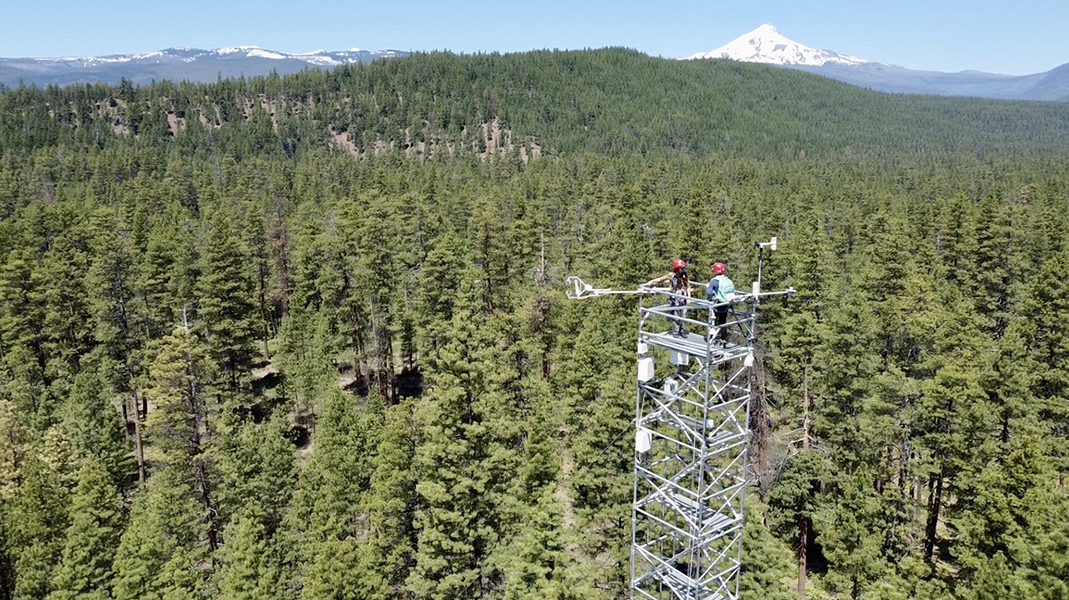FLUXNET is blending art and science to empower society to feel ecosystem dynamics and environmental change. For a period of one year, scientists and artists engage in collaborative inquiry and curiosity-driven exploration about FLUXNET.
This NSF-funded pilot artist in residence program is being offered for the first time in 2024-25. Projects emerging from fluxART collaborations are featured at the Patricia Valian Reser Center for the Creative Arts (PRAx), Currents Exhibit, 22 January - 7 March 2026 in Corvallis OR.

What is FLUXNET?
Our understanding of climate change depends on our understanding of ecosystem fluxes—how things like carbon, water, and energy move between the biosphere and the atmosphere. These fluxes are regulated by ecosystem processes including turbulent transport of mass and energy, evapotranspiration, photosynthesis and soil respiration, and are also affected by human activities and natural disturbances.
Scientists around the world have set up nearly 1,000 towers instrumented to constantly collect data about carbon, water, and energy fluxes – they are observing how the biosphere breathes. The key measurement technique used to collect these flux data is called eddy covariance. It is the gold standard to measure total fluxes at the ecosystem scale without probing every plant and inch of soil on the landscape. All of this data is shared through a global ‘network of networks’ called FLUXNET with a mission to facilitate collaboration and data sharing.
FLUXNET is much more than its datasets. It is a scientific community dedicated to understanding and communicating how ecosystems function and how Earth systems are changing. Having flux data in one place allows scientists to do big-picture thinking about climate change and develop models. Scientists also partner and engage with stakeholders to address applied environmental challenges with more local societal benefits. FLUXNET data and models are used for scientific discoveries and to inform local and international ecosystem management efforts, including climate change adaptation and mitigation strategies.
Why fluxART?
The intricate nature of our planet’s future and the uncertainties it carries, offers countless opportunities for us to promote climate action and nurture healthy ecosystems. The bridge between the scientific achievements necessary for these goals and actual global change is constructed by our collective imagination and calls for collective healing. While both scientists and artists share a creative curiosity to observe and interpret how the world works, scientific outreach efforts often fail to lead society to fully feel and understand environmental change in a way that is empowering. This in turn limits the segment of the population that is inspired by science and driven to contribute to sustainable futures.
To break these barriers and reimagine transformative engagement with the public we are piloting fluxART, an artist in residency program in partnership with PRAx. This novel outreach initiative aims to contemplate this biosphere’s breath, both to illuminate flux science in the general public’s imagination and to strengthen communication between academics and society toward more actionable research.


follow us @fluxnet.art
